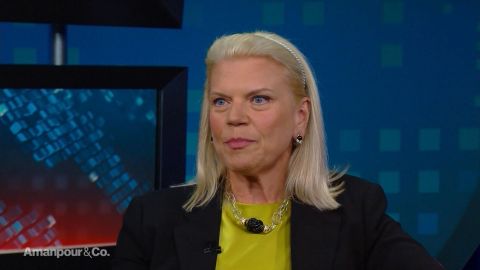Read Transcript EXPAND
BILLIE JEAN KING: But I do think there is some sexism in tennis.
Even the men’s brought it up.
CHRISTIANE AMANPOUR: Have you —
KING: McEnroe did, Murray, Djokovic said they do think the men get away with more. They just do. Because men are outspoken when they stand up for
themselves and women are looked at as hysterical. We are not. We are also speaking up.
I could never speak like that when I was playing. The way that — if I did — oh, my gosh. I very rarely could talk like that. You look at all the
interviews nowadays, we were much softer spoken, much more like Osaka is now. That’s what it reminded me of in the ’70s. We had to be so careful.
It’s different now. Women are standing up. They’re not — they don’t care anymore. They’re — if they’re going to be outspoken and have their
opinion, it’s good. People have a hard time, accepting it.
AMANPOUR: There was somewhat dueling op-eds after this, it was you, the champion of women’s tennis, Martina Navratilova, who is such a decades long
champion, so many grand slams to her name. She also somewhat disagreed. She said Serena got part it have right and part of it wrong, as we sort of
talked about.
KING: I agree with that.
AMANPOUR: But she said, “I don’t believe that it’s a good idea to apply a standard of, if men can get away with it, women should be able to too.
Rather, I think the question we have to ask ourselves is this, what is the right way to behave, to honor our sport and respect our opponent?” So —
KING: Yes. But that’s sitting when you’re calm. I mean, she knows better. She also had a temper on the court. When you’re out there, you
know how emotional you get and you really have to keep resetting as you go through a match, you have to refocus all the time.
But once you go past a certain emotional mark, you’re gone. You are gone. You can’t see straight. And then it’s just — I mean, I walked off the
court one time and it was the worst thing I should have done but I couldn’t help it. I had had it. I had had it. And that’s where you need great
umpiring.
I loved umpires that were strict, told me the rules. If they know the rules. If they don’t know the rules, I used to get upset. But I like the
way, “Billie, this is the way it is.” I go, “Okay.” But so, I felt he should have said, “|I’m not attacking your character,” I think everything
would have been different.
AMANPOUR: So, let’s say that was the case. But now, clearly this is a moment, something has to change in the rules or something.
KING: Oh, the game has to change.
AMANPOUR: So, what do you think should be the result of this conflict?
KING: The good thing is the game has to change, which a lot of us have been complaining for years. Communicate with the crowd, communicate with
the crowd. We never know what’s going on.
AMANPOUR: And allow coaching?
KING: And allow coaching. I’ve always thought we should allow coaching. Also, we would get more attention to our sport like other sports, team
sports in particular, to get about coaching, they get more (INAUDIBLE), they get more social media. It will help enhance our sport and have more
people. But one thing that’s lacking is we don’t have women coaches enough.
AMANPOUR: OK. So, do you think this will be the moment? Do you see it actually changing?
KING: Yes. I think out of crisis, this is a little in our sport of crisis, I think. I think out of crisis creates opportunity and get things
right. This is an opportunity for us to get it right.
About This Episode EXPAND
Christiane Amanpour interviews Billie Jean King, former world number 1-ranked tennis player and founder of the Women’s Tennis Association; and John Kerry, former Secretary of State. Walter Isaacson interviews Ginni Romety, CEO of IBM.
LEARN MORE


